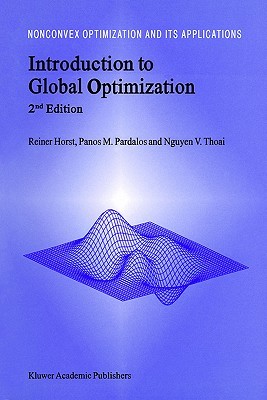
- Išsiųsime per 10–14 d.d.
- Extra -15 % nuolaida šiai knygai su kodu: ENG15
Atsiliepimai
Aprašymas
In this edition, the scope and character of the monograph did not change with respect to the first edition. Taking into account the rapid development of the field, we have, however, considerably enlarged its contents. Chapter 4 includes two additional sections 4.4 and 4.6 on theory and algorithms of D.C. Programming. Chapter 7, on Decomposition Algorithms in Nonconvex Optimization, is completely new. Besides this, we added several exercises and corrected errors and misprints in the first edition. We are grateful for valuable suggestions and comments that we received from several colleagues. R. Horst, P.M. Pardalos and N.V. Thoai March 2000 Preface to the First Edition Many recent advances in science, economics and engineering rely on nu- merical techniques for computing globally optimal solutions to corresponding optimization problems. Global optimization problems are extraordinarily di- verse and they include economic modeling, fixed charges, finance, networks and transportation, databases and chip design, image processing, nuclear and mechanical design, chemical engineering design and control, molecular biology, and environment al engineering. Due to the existence of multiple local optima that differ from the global solution all these problems cannot be solved by classical nonlinear programming techniques. During the past three decades, however, many new theoretical, algorith- mic, and computational contributions have helped to solve globally multi- extreme problems arising from important practical applications.EXTRA 15 % nuolaida
Kupono kodas: ENG15
Akcija baigiasi už 15:54:37
Nuolaidos kodas galioja perkant nuo 10 €. Nuolaidos nesumuojamos.

- Autorius: R Horst
- Leidėjas: Springer
- ISBN-10: 0792367561
- ISBN-13: 9780792367567
- Formatas: 15.6 x 23.4 x 2 cm, minkšti viršeliai
- Kalba: Anglų




Atsiliepimai